This innovative “phone booth” might help us save crores in this fight against coronavirus
Aditya Ranjan, IAS, West Singhbhum, Jharkhand, has developed a model in which health workers will not need to wear personal protective equipment kits during sample testing of COVID-19
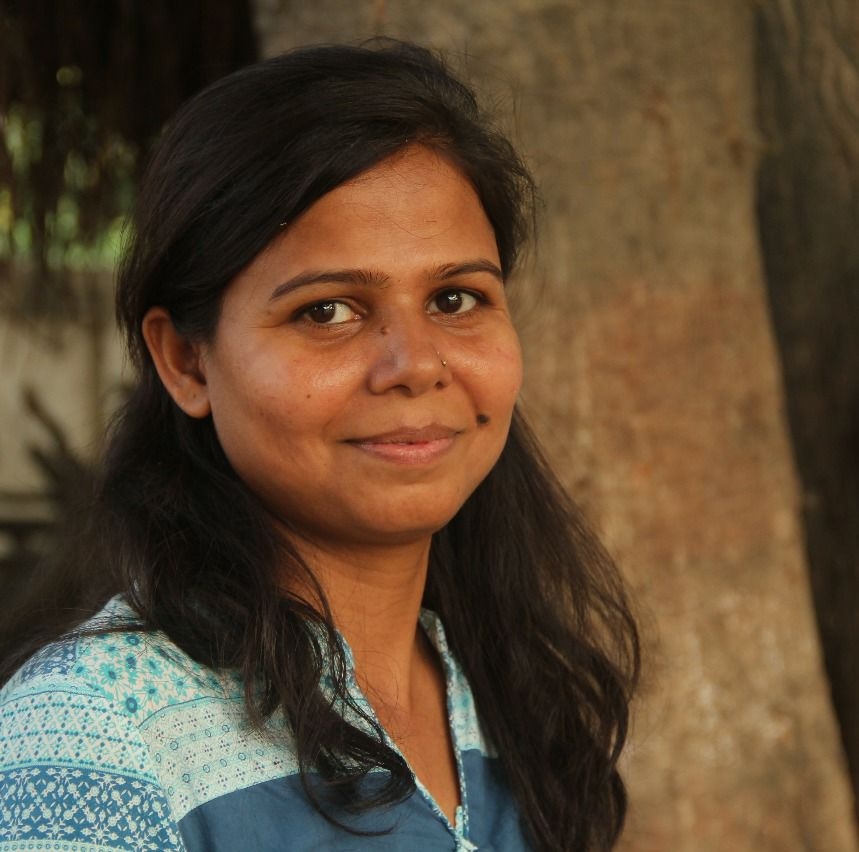
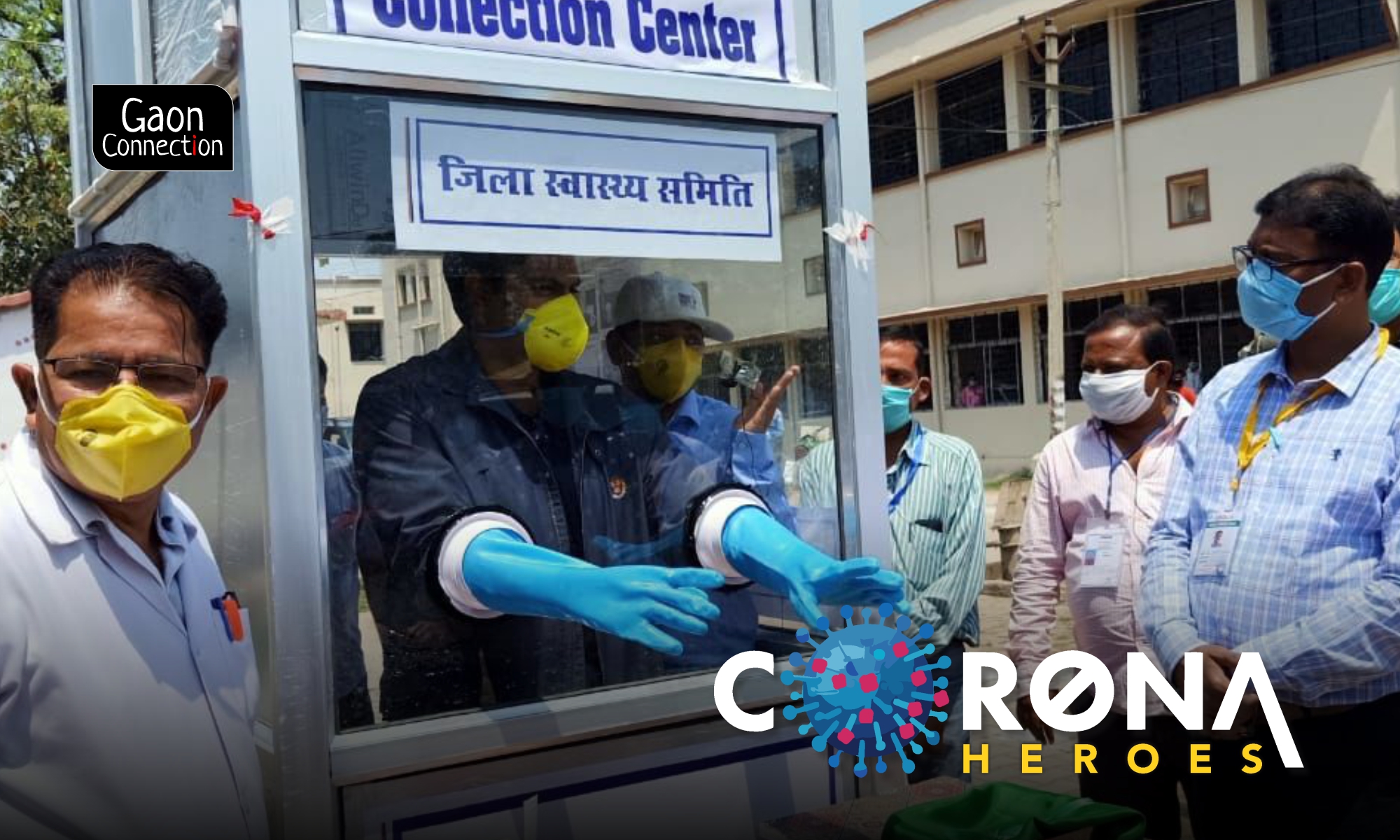
Aditya Ranjan, the additional commissioner of West Singhbhum district of Jharkhand, and an IAS officer, has come up with one unique equipment that will help in easing the battle against coronavirus in the country. If this equipment is brought to use across the country, crores of rupees can be saved.
He has developed a model for sample testing of COVID-19 recently in which health workers will not need to wear personal protective equipment (PPE) kits during sample testing. This collection centre can be easily moved from one place to another. It will prove to be cost effective and time efficient for testing the infection of a large population. He has also created a remote-run ‘co-bot’ trolley that will reach the infected patient with food, without the help of a health worker.
Ranjan said: “The country is in grave shortage of PPE kits at the moment. The number of probable cases is increasing day by day. At many places, health workers have been attacked during sample testing. We watched videos of certain countries to learn new ways to simplify the testing process. The idea came from there. ‘Phone booth COVID-19 sample collection centre’ was prepared at my home in three days with the help of local engineers.”
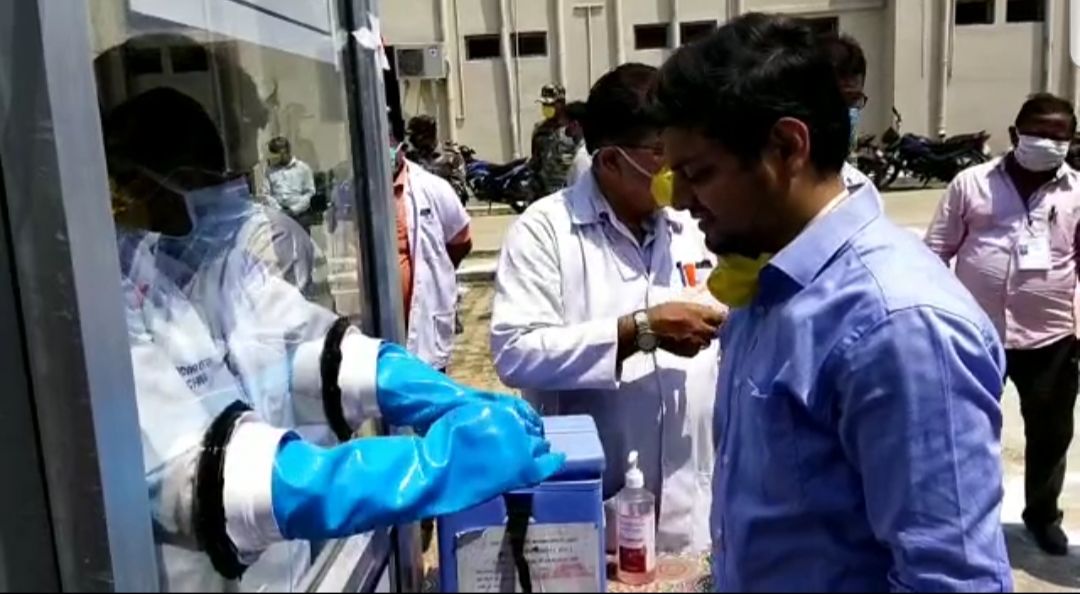
He was born in a small town — Chaas — in Bokaro. He studied in a government school and later studied engineering from the Birla Institute of Technology, Mesra (BIT) Institute, Ranchi. Being from an engineering background, he has made numerous innovations that can solve many health problems if adopted everywhere during this lockdown.
The phone booth COVID-19 sample collection centre is fully ‘air tight”. As it’s made using aluminum sheet, the air cannot go inside and out. The health workers can easily take samples of a probable patient of corona by wearing the clubs from inside it. They can easily work inside the cabin for 20 minutes. A sample of one person can be taken in a minute. The most important thing is that the health worker does not need to wear PPE kits while taking samples of the suspect patient.
According to World Health Organisation (WHO) guidelines, the PPE includes gloves, medical masks, gowns and N95 respirators. Every health worker who takes samples has to wear the PPE. The cost of a PPE kit varies between Rs 600 and Rs 3,000 and each PPE kit has to be replaced after taking a sample of one person.
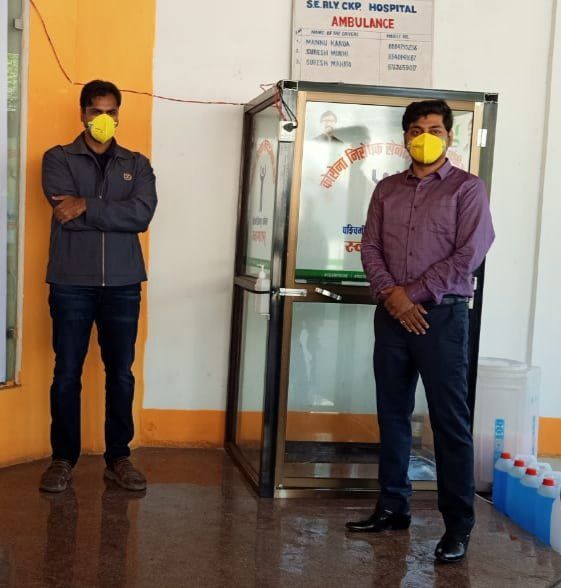
Talking about the benefits of the phone booth sample collection, Ranjan said: “In view of the increasing suspect cases in the country, using these PPE kits can be very costly. It will cost crores of rupees. The phone booth sample costs only once, then a large number of checks will continue without any expense. The sample-taking health worker will be away from suspect patients. That will reduce the risk of infection.”
The creation of a ‘phone booth COVID-19 sample collection centre’ costs Rs 15,000-20,000 in which samples of thousands of people can be taken in a short time. It has been put to use from April 4 in the West Singhbhum district. In order to prevent the infection through aerosols released during the patient’s coughing and sneezing, the ‘phone booth COVID-19 sample collection centre’ has been covered with glass on all sides. A microphone has been installed inside the cabinet to allow the patient to hear the voice of the health worker sitting inside.
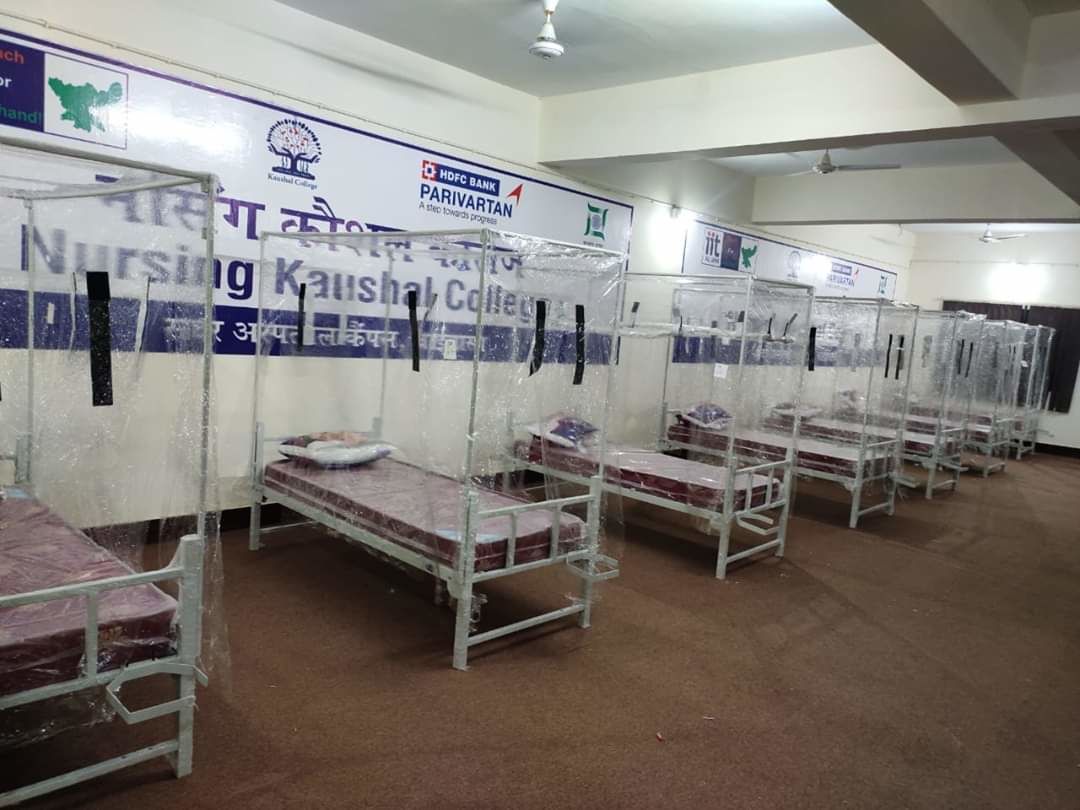
When asked was there any particular reason behind naming it the ‘phone booth centre’, Ranjan said: “It has been made like a phone booth. It is surrounded by glass inside which the doctor will sit and take a sample of the mouth and nose in just one minute of the person standing outside. One of the features is that it can be sent for testing anywhere in the villages or towns by placing it in a small vehicle.”
In places where more samples are to be taken, it can be done more efficiently through this booth while maintaining social distancing.
Besides this ‘Phone booth COVID-19 sample collection centre’, Aditya has made a device called ‘co-bot’ which runs on a remote. It is a trolley-shaped robot which can carry 30 people’s breakfast, food and medicine to the patients without the help of health workers. This will lessen the contact with the infected person. Only one person is needed to control it with the remote. It also has a microphone and a camera so that the patient and the remote operating person can interact and the patient’s condition can be assessed.

Ranjan said: “Hundreds of health workers around the world have been affected by the virus while caring for the patient. Some have also lost their lives, so the ‘co-bot’ will be very effective in protecting them from infection. The PPE kits are also needed while giving medicine and food to the patients and will be spared with the help of co-bots.”
The price of this ‘co-bot’ is about Rs 25,000. Aditya took only three days to make it.
If this infection is most likely to spread among certain people in the country, they are the doctors, health workers, police, ASHA workers and sweepers because they are the people who are constantly doing their duty and living among the suspects. Ranjan has made ‘face shield’ to keep these people safe during their work. This face shield (special protection) can be worn by a health worker like a helmet over the mask. This cover substantially brings down the chances of infection. These are distributed free of cost to health workers and police in the district.
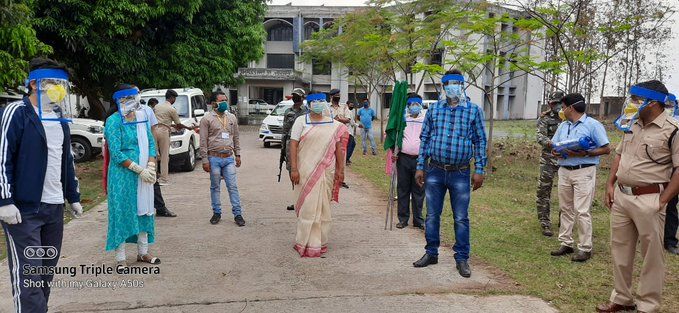
When asked how did he managed to design so many devices in such a short time, Ranjan said: “Due to my engineering background, I have always been interested in all such things. It was not very difficult to do all this. If it is implemented everywhere, I think it will be very useful for health workers.”
It has cost about Rs 110 to make a face shield. Special type of transparent plastic has been used to prepare it. It can be easily fitted upon the head like a cap. It is comfortable to wear due to its sweat absorbing foam.
The West Singhbhum district of Jharkhand is infamous due to naxalites and is an extremely backward district. The efforts for Ranjan have also been appreciated by the state chief minister, Hemant Soren. This effort has also been implemented in certain areas across many states like Rajasthan, Uttar Pradesh, Arunachal and Kerala.
Ranjan has not spared any effort on his part to avoid the spread of corona infection in the district. A sanitization room has also been prepared for the health workers in which these people are first sanitized before going to the hospital. They have isolated every bed in the isolation centre. Every bed is coated with plastic cover so that one person does not come in contact with another person.

